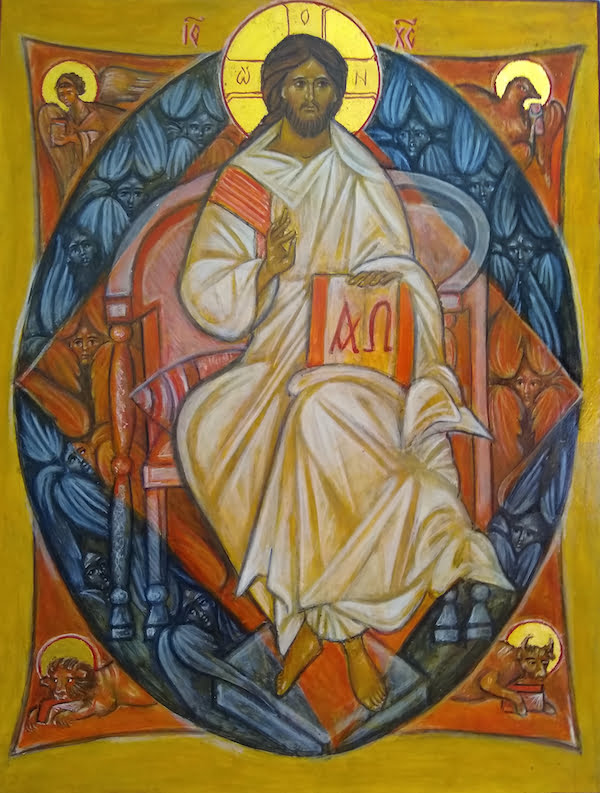King is a title that does not resonate with the soul of America, built against the power of England’s king. But the Bible talks about king and in the Old Testament, for the Israelites, there was no more important person than the king; even if the prophet Samuel warns the people of the inconveniences of royalty in the magnificent chapter 8: 10-18 in the 1stbook of Samuel. The king was the anointed of God. So, for the Israelites it was normal to talk about the kingship of God to underline God’s power. It is not the same in our time when there are other kinds of government. It is why this title of king is difficult for us now to truly understand it.
But Jesus accepted this title, before Pilate for instance who asked him:
“Then you are a king?”
And Jesus answered him:
“You say I am a king. For this I was born and for this I came into the world. To testify to the truth”. Jn 18: 37
Before Pilate Jesus is stripped of all dignity, humiliated, abandoned by his own people. The gospel of this solemnity is strange for a king! It echoes the Ps 21: despised by all etc… We see the rulers, then the soldiers sneering and jeering at him: “If you are the Christ of God, the Chosen one, the king of the Jews…” Maybe in their mockeries, there is a call to understand, to be saved from their own blindness, to find an answer of their desire to be saved. But Jesus does not answer; he does not enter this blackmail that goes nowhere. He assumes all the violence that is unleashed. He will not save himself in the same way that he refused to transform stones in bread etc.. There is a parallel between this gospel and the temptations. Betrayed, he welcomes death, entrusting himself to his Father.
What kind of king is this?
A moment of light appeared: the dialogue between Jesus and the second criminal; the latter is not innocent, not at all and surely would have continued his murders if he has not been caught. But he acknowledges his crimes and he keeps his conscience alive. And he heard the most beautiful promise: “today you will be WITH ME in Paradise”.
This is the kingship of God. When we think of power, we think of strength, of seduction, of good management. Jesus refuses this kind of power; because rather his power is his love offered, reliance on attraction to love, to exchange and free desire. Because love, even despised or denied is what subsists in the depths of our being, it is what we are made of and for. Love is the seal of God in us; love is what makes us images of God.
The second reading gives us another development of this love; Christ’s power is a power that frees us. We are not subjects of the kingdom; we are heirs; we share the inheritance. As Jesus said to Saint Dismas: you will be with me, not under me. This “with me” will be accomplished at the end of time, but it starts today. The power that is given to us in Christ is this power to love. It is today that we can live it, we can start loving surely, awkwardly maybe, but truly and then we announce the kingdom which is coming, and we make it exist now.
This week, we will celebrate the feast of Thanksgiving; beyond the historical context or the way people live it, there is something deep because we are always called to receive everything from God. We can make a list of things we have, we receive, we experiment, things that are exterior to us; and they are plentiful and beautiful. But inside we surely be grateful for this call to be with Christ; he is the elder brother and he welcomes us at the end of history, Love awaiting us.
Sr. Claire Bouttin, Superior
November 23, 2025


